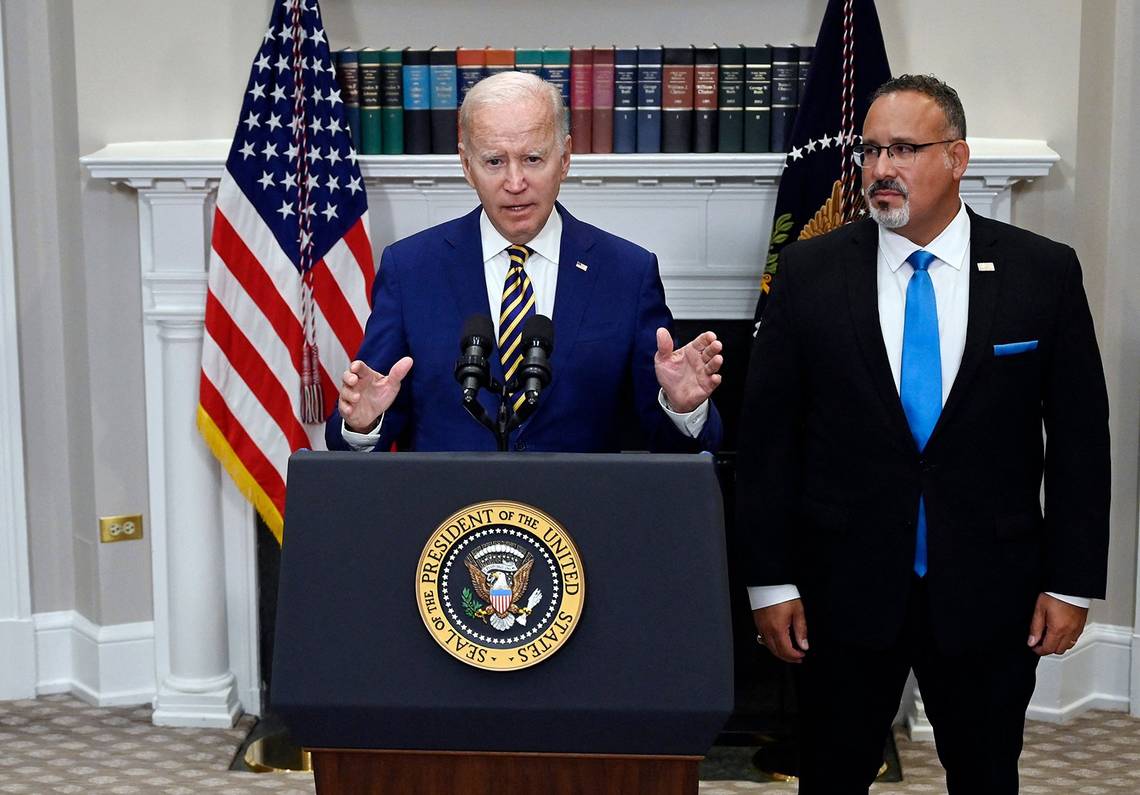Biden Student Loan Forgiveness: Lately, the subject of educational loan absolution has acquired monstrous consideration, with President Biden’s organization at the very front of the conversation. The commitment to Biden’s understudy loan absolution has created trust and positive thinking among borrowers troubled by the heaviness of their schooling-related obligation. In this article, we will investigate the different features of the Biden understudy loan pardoning program, its likely advantages, qualification standards, and the way ahead for borrowers looking for obligation alleviation.
Biden Understudy Loan Absolution: The Commitment
President Biden’s obligation to addressing the understudy obligation emergency has prompted a few propositions pointed toward giving monetary help to a great many borrowers. Among these proposition, two critical drives stick out:
- Public Assistance Advance Pardoning (PSLF) Development: The Biden organization has proposed an extension of the PSLF program, which excuses government understudy loans for borrowers who work in broad daylight administration or not-for-profit associations. The extension expects to work on the absolution cycle and increment the quantity of qualified borrowers.
- Pay Driven Reimbursement Plans: One more key part of Biden’s understudy loan pardoning plan is further developing pay driven reimbursement plans. These plans cap regularly scheduled installments in view of a borrower’s pay and family size and proposition pardoning following a set number of years. The organization tries to make these arrangements more liberal and available.
Biden Student Loan Forgiveness: Eligibility Criteria
While the promise of student loan forgiveness is enticing, borrowers must meet specific eligibility criteria to benefit from these programs. Eligibility for Biden student loan forgiveness typically depends on factors such as the type of loans, repayment plan, and the borrower’s profession.
- Federal Student Loans: Most Biden student loan forgiveness initiatives apply to federal student loans, including Direct Subsidized and Unsubsidized Loans, Direct PLUS Loans, and Federal Consolidation Loans. Private student loans are generally not eligible for these programs.
- Repayment Plan: To qualify for forgiveness, borrowers often need to be on an income-driven repayment plan. These plans include Income-Based Repayment (IBR), Pay As You Earn (PAYE), and Revised Pay As You Earn (REPAYE).
- Public Service Work: For programs like PSLF, borrowers must work in qualifying public service or nonprofit jobs for a specified period, typically ten years, before becoming eligible for loan forgiveness.
Biden Student Loan Forgiveness: The Impact
The possible effect of Biden’s understudy loan pardoning proposition is immense. For some borrowers, these projects could altogether mitigate the monetary weight of educational loans, permitting them to zero in on other monetary objectives, like homeownership and retirement reserve funds. Moreover, by improving on the pardoning system and extending qualification, the Biden organization intends to contact a more extensive crowd of borrowers, including the individuals who might not have at first qualified.
In any case, it’s fundamental to perceive that these recommendations are as yet dependent upon official endorsement and may go through changes during the regulative cycle. Borrowers ought to remain informed about updates to the projects and talk with their credit servicers or monetary counselors for the most reliable and modern data.
Biden Student Loan Forgiveness: The Path Forward
As the discussion over Biden understudy loan pardoning proceeds, borrowers can find proactive ways to deal with their understudy loan obligation really. Here are a few commonsense tips:
- Stay Informed: Keep abreast of the latest developments in student loan forgiveness programs. Government websites and reputable news sources are valuable resources for staying informed.
- Review Your Loans: Understand the types of student loans you have and the repayment plans available to you. Assess your eligibility for current forgiveness programs.
- Consider Refinancing: If you have private student loans or federal loans with high interest rates, consider refinancing to potentially lower your monthly payments.
- Budget Wisely: Create a budget that allows you to make consistent, on-time payments. Consider setting aside an emergency fund to avoid defaulting on your loans.
Conclusion
Biden understudy loan pardoning is a controversial problem with the possibility to reshape the monetary fates of millions of Americans. While the commitment of obligation help is tempting, it’s significant for borrowers to comprehend the qualification standards, remain informed about program updates, and find proactive ways to deal with their understudy loan obligation actually. Thusly, borrowers can explore the way to monetary dependability and jump all over the chances that might emerge from these promising drives.

